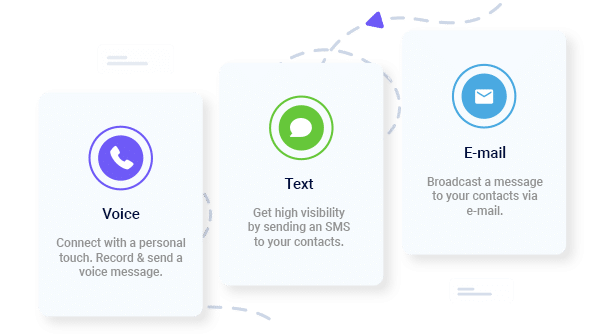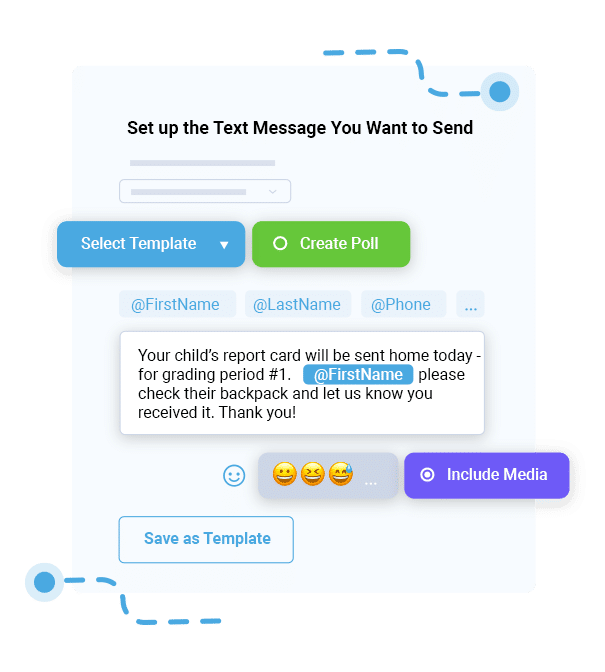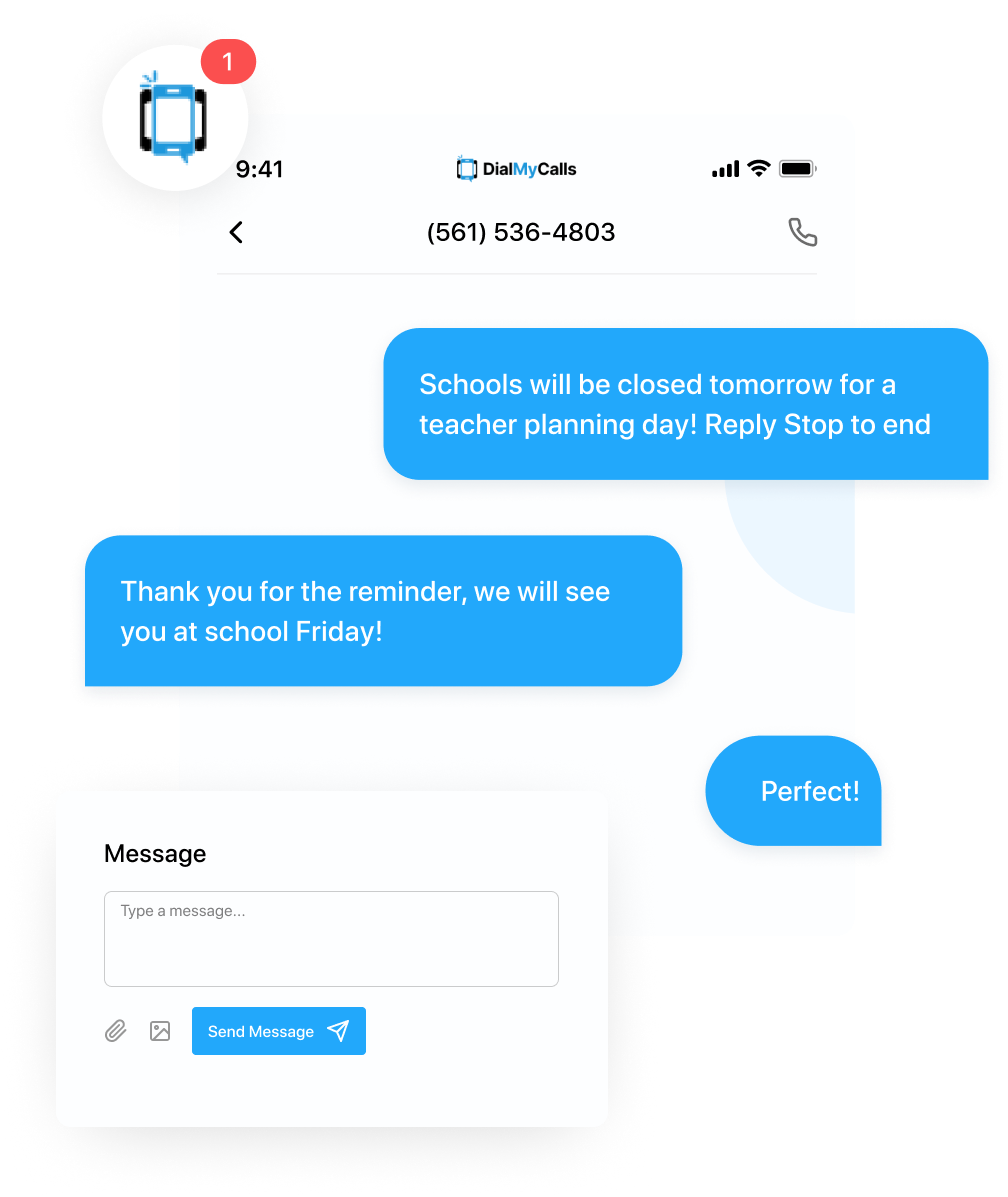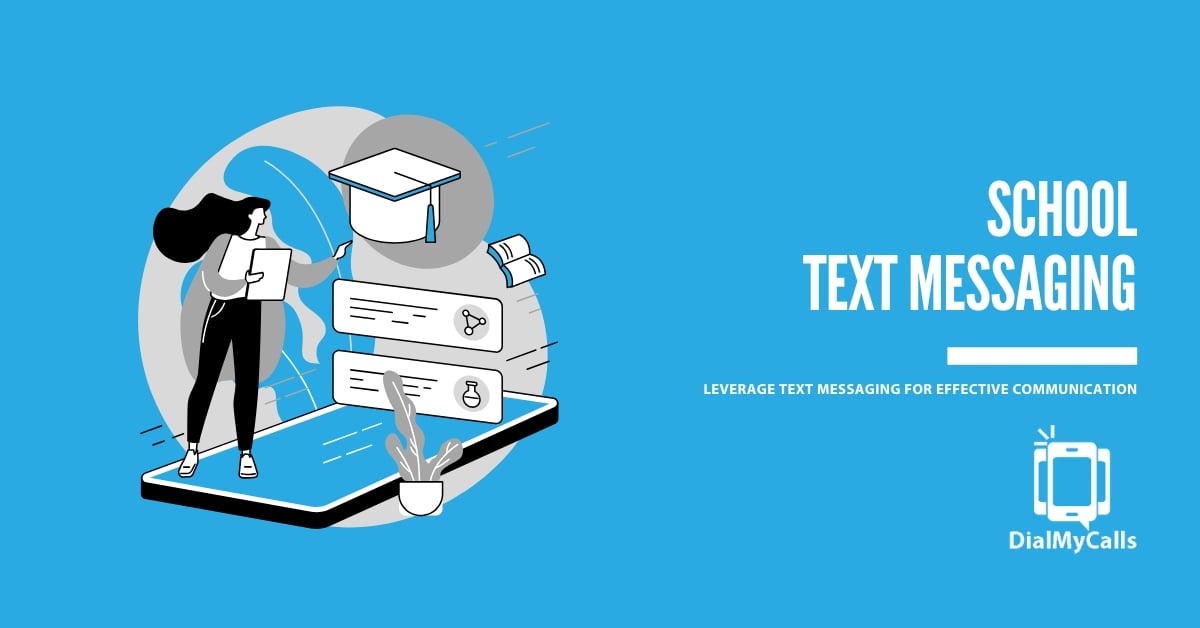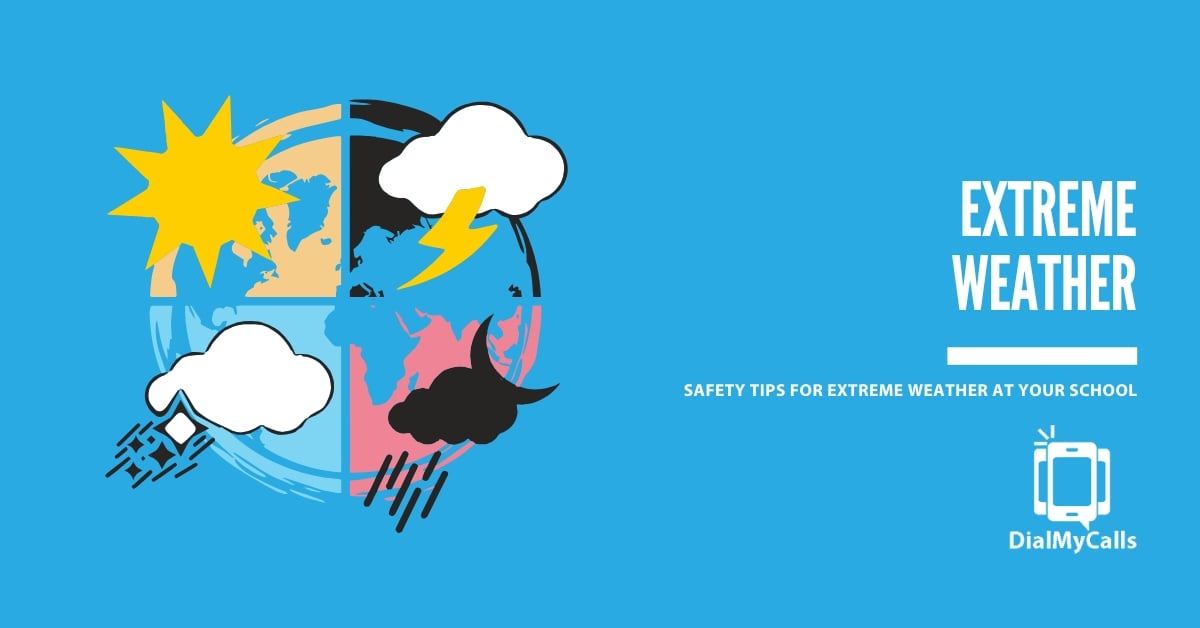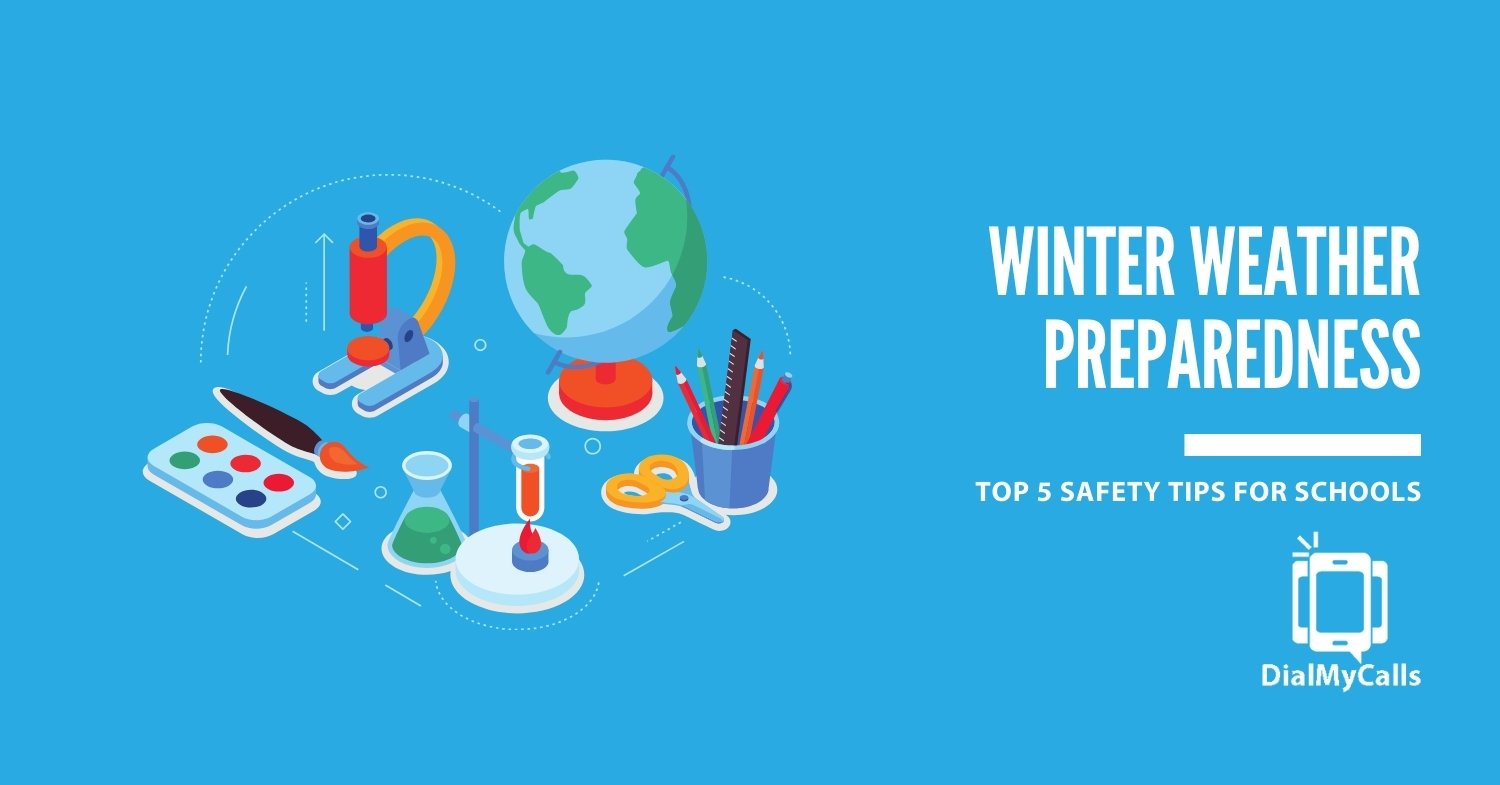Author
Tim Smith is the Media Manager at DialMyCalls, where he has leveraged his expertise in telecommunications, SaaS, SEO optimization, technical writing, and mass communication systems since 2011. Tim is a seasoned professional with over 12 years at DialMyCalls and 15+ years of online writing experience.
Try Using DialMyCalls Right Now
Start For FreeRecent Posts
- 8 Creative SMS Marketing Ideas to Boost Engagement This Summer
- 15 Ways to Use QR Codes For Event Promotion & Attendee Engagement
- Top 6 Automated Calling Service Providers For Your Business
- Boost Customer Experience with QR Codes: From Menus to Payments
- Everything You Should Know About Ringless Voicemail
Categories
“I am a youth minister and have spent hours in the past calling students individually to remind them of an upcoming event or to get out an urgent announcement. With DialMyCalls.com, I cut that time down to about 1 minute. I also love how I can see exactly who answered live and how long they listened so I know if they heard the whole message. DialMyCalls.com is the best website I have stumbled upon all year! Thanks!”
Central Baptist Church
Try Using DialMyCalls Right Now
Start For FreeHow Modern Communication Drives Parent-Teacher Collaboration for Student Success
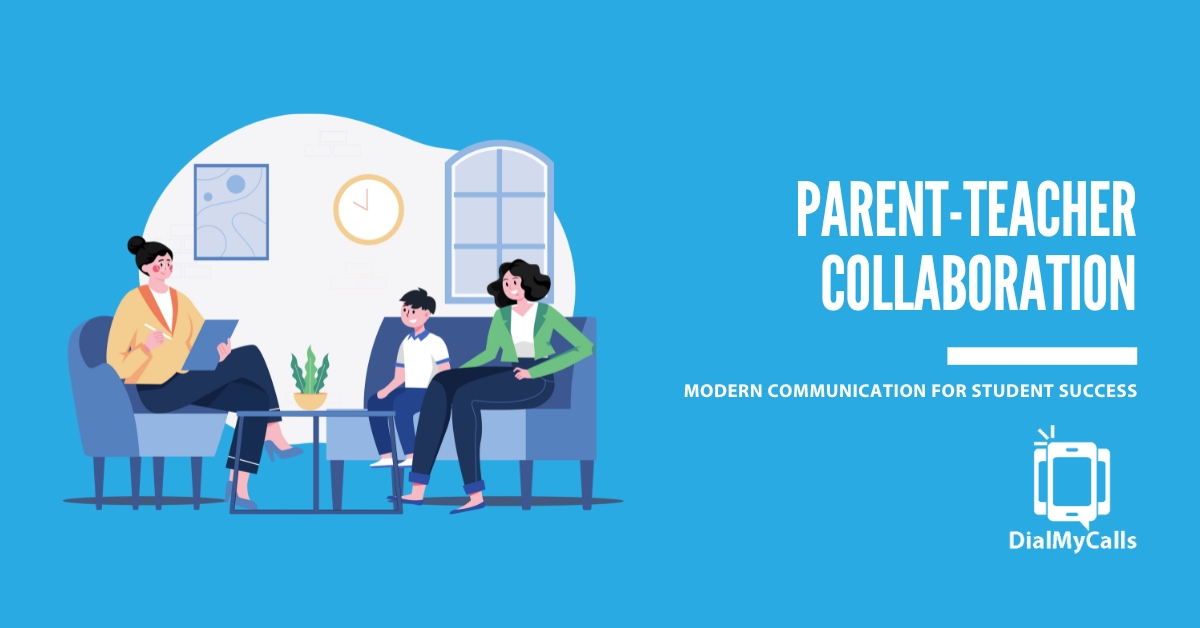
Every thriving student has a strong support system—and at its heart are parents and teachers. Together, they create a foundation that helps students excel academically, socially, and emotionally. But what’s the secret for making this partnership work? It’s good old-fashioned communication (with a modern twist).
Effective communication isn’t just about exchanging updates. It’s about building trust, closing gaps, and keeping everyone focused on a shared mission: setting students up for success.
So, in this blog, I’ll unpack the transformative power of communication in parent-teacher collaboration, highlight common hurdles, and share actionable tips to overcome them. And, of course, we’ll take a look at how tech tools—like the versatile DialMyCalls platform—make it easier than ever to stay connected and in sync.
Why Communication is the Foundation of Parent-Teacher Relationships
Good communication is like a sturdy bridge—without it, you’re stuck yelling across a canyon. Misunderstandings pile up, opportunities are missed, and—surprise, surprise—it’s the students who pay the price. But when communication flows? Things run smoothly.
Here’s how effective communication creates a ripple effect:
- It Builds Trust: Transparency is the bedrock of any strong relationship. When parents and teachers are upfront with one another, they cultivate a sense of mutual respect, making it easier to tackle challenges as a team.
- It Keeps Problems Manageable: Regular check-ins allow you to spot issues—like a dip in grades or behavioral hiccups—before they snowball into bigger concerns.
- It Empowers Parents: When parents are looped in, they’re no longer passive observers. They become active participants in their child’s learning journey, equipped with the information they need to reinforce lessons and celebrate milestones at home.
The result? Students see that their education is a shared priority, giving them the confidence and motivation to aim higher.
The Realities of Keeping Communication Flowing
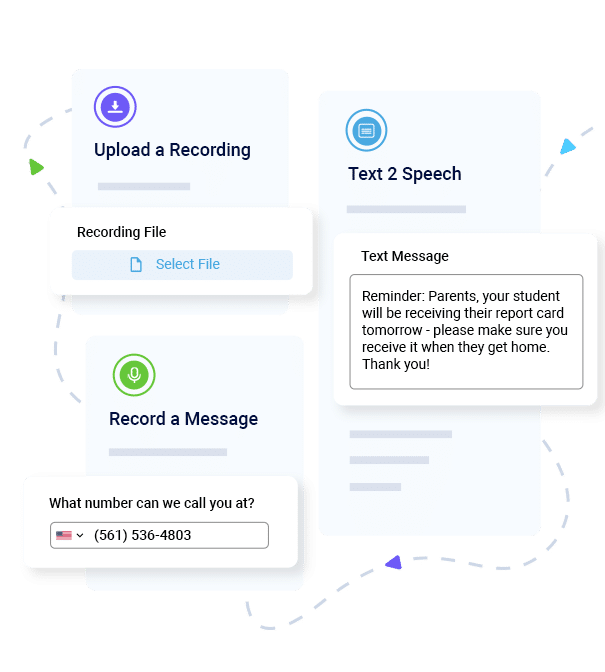
Let’s be real: knowing communication is important doesn’t make it easy. Over the years, I’ve talked to plenty of teachers and parents, and a few recurring challenges always seem to rear their heads:
- Packed Schedules: Teachers juggle lesson planning, grading, and managing classrooms. Parents, meanwhile, are running the gauntlet of work, childcare, and everything else life throws their way. Finding time for meaningful dialogue? It’s a logistical gymnastics routine.
- Cultural and Language Barriers: Diversity enriches schools, but it also means communication requires extra thought. Without care, language differences or cultural nuances can unintentionally create distance.
- Outdated Methods: The days of crumpled notes at the bottom of backpacks are long gone (or at least they should be). Relying on these antiquated methods often lead to missed messages and growing frustrations.
- Information Overload: On the flip side, bombarding parents with emails, texts, and newsletters can cause them to tune out entirely. When every notification feels “urgent,” it’s hard to know what really matters.
None of these hurdles are insurmountable, but addressing them takes intention, creativity, and yes—a little help from technology.
Keep Everyone Connected & Informed
Get the Word Out Quickly with Bulk Texting and Voice Calls
Six Strategies to Supercharge Parent-Teacher Communication
- Set Clear Communication Expectations
- Make Regular Check-Ins Non-Negotiable
- Utilize Technology Like a Pro
- Be Honest and Transparent
- Customize Communication for Each Family
- Create Feedback Loops
What’s the secret for communication that works like a charm? Thoughtfulness. By being deliberate about the how, when, and why of the exchanges, parents and teachers can turn mundane messages into meaningful dialogues. Here’s how:
1. Set Clear Communication Expectations
The simplest tricks are often the most effective. By setting clear expectations early, you avoid the chaos of miscommunication and ensure vital info doesn’t vanish in thin air..
Here’s the game plan:
- Centralized Tools: Use platforms like DialMyCalls to orchestrate communication effortlessly. With group updates, personalized messages, or emergency alerts, parents won’t need to conduct archaeological digs in their inboxes.
- Define Availability: Be upfront about how and when you’re reachable. Whether it’s email, a messaging app, or pre-scheduled calls, setting boundaries ensures everyone knows the rules of engagement.
- Stick to a Routine: Consistency breeds trust. A Friday 3 PM classroom update? Parents will anticipate it like clockwork, eliminating the need for frantic midweek searches for updates.
2. Make Regular Check-Ins Non-Negotiable
Waiting for problems to pop up is so last season. Proactive communication fosters trust and keeps everyone in the loop.
Ideas to keep check-ins regular and relevant:
- Classroom Snapshots: A weekly email or handout summarizing assignments, topics, and triumphs keeps parents informed and engaged.
- Tailored Conferences: Traditional parent-teacher meetups are great, but they’re not a one-size-fits-all affair. Customize these talks to focus on what truly matters—academic growth, behavioral progress, or emotional well-being.
- Virtual Options: Busy schedules? No problem. Offer virtual meetings so parents can tune in from the comfort of their couch—or car.
Regular check-ins don’t just share information; they nurture relationships, celebrate victories, and nip issues in the bud.
3. Utilize Technology Like a Pro
Modern communication tools have replaced our outdated methods, making it easier than ever for us. Technology brings speed, convenience, and reliability to the table.
Here’s how to wield it wisely:
- Group Messaging: Notify the whole class about field trips in a single click. Hours saved, stress avoided.
- Real-Time Alerts: Sudden weather closure? Last-minute schedule tweak? SMS alerts ensure parents get the memo instantly.
- Automated Reminders: Schedule updates about events in advance, so no one forgets that all-important due assignment.
- Emergency Notifications: Platforms like DialMyCalls keep everyone informed in critical situations.
- Engaging Content Delivery: Attach videos, share resources, or send surveys—because communication should be more than plain text.
Tech simplifies the mundane, giving teachers more bandwidth to focus on their students.
4. Be Honest and Transparent
Honesty may not win you a popularity contest, but it does build trust—the bedrock of any solid relationship.
What does transparency look like?
- Celebrate Wins: Don’t just reach out when things go sideways. Acknowledge progress and positive behavior to balance the narrative.
- Proactively Address Challenges: Got concerns about a student? Share observations early, suggest solutions, and loop parents into the plan.
- Set Expectations: Clearly communicate classroom rules, goals, and policies so everyone’s on the same page.
Transparency isn’t about sugarcoating or blame-shifting—it’s about partnership.
5. Customize Communication for Each Family
One-size-fits-all might work for socks, but it’s a no-go for communication. Tailoring your approach shows parents they matter.
Personalization strategies:
- Milestone Recognition: Celebrate achievements, whether it’s an academic win or a behavioral breakthrough. A simple “Great job!” can make a big impact.
- Culturally Relevant Materials: Provide resources in parents’ preferred language or with cultural considerations in mind. It’s a small effort with a huge payoff.
- Adapt to Preferences: Some prefer emails, others like texts. Find out what works and stick to it.
When communication feels personal, parents are more invested in the partnership.
6. Create Feedback Loops
Communication isn’t just about talking—it’s also about listening. Parents who feel heard are more engaged and supportive.
How to make feedback part of the process:
- Surveys: Quick, targeted surveys can reveal what parents think about policies or communication methods.
- Open Q&A Sessions: Dedicate time during meetings for parents to share concerns or ask questions.
- Follow Up: Acknowledge suggestions, even if they’re not feasible. Letting parents know they’re heard strengthens trust.
Feedback isn’t just a courtesy—it’s a cornerstone of collaboration.
By embracing these strategies, teachers and schools can create communication systems that are clear, consistent, and impactful.
The Bottom Line
At the end of the day, strong communication isn’t about perfection; it’s about connection. When parents and teachers work together, students feel the difference. They see that their education matters to the people who care about them most, and that support gives them the confidence to reach for their goals.
If you’re looking for a way to improve communication, I encourage you to try DialMyCalls. This tool brings clarity and simplicity to one of the most important parts of education: staying connected.
Stay Connected with Mass Notifications
Create & Send a Broadcast to Thousands in Seconds
